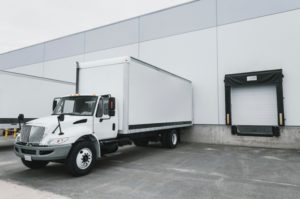Transportation is vital to CPG operations. In fact, in a recent study, 83% of supply chain leaders in the CPG industry say transportation is their top

concern. The CPG supply chain has become more complex and consumer demands are driving the need for transportation efficiency.
In 2013, 6% of supply chain leaders said redesigning their transportation network was a concern. By the end of 2015, 72% said it was their number one concern. This rapid shift in priorities could be attributed to three reasons:
- Omni-Channel Shipping Challenges. Only 16% of retailers and CPG shippers say they maintain profitable omnichannel fulfillment. Omni-channel supply chains require new forms of inventory management and fast order fulfillment, both of which strain transportation efficiency.
- Capacity Constraints. Fulfilling the demands of omnichannel commerce can be unprofitable for carriers and a burden for drivers. CPG manufacturers want more resourceful and carrier-friendly routing so that carriers will work for them at a reasonable price.
- High Operating Costs. The increasing complexity of CPG supply chains leads to less efficient operations, which leads to higher costs. As with many companies, transportation is ripe with opportunities to cut costs and improve service levels – something CPG manufacturers are in desperate need of.
CPG transportation service levels have been declining since 2010. This is happening at a time when consumers are demanding speed and efficiency up the supply chain. It’s no wonder CPG supply chain leaders’ top priority is to redesign their transportation network.
The only problem with network redesign is that, while it’s very important, it’s also extremely difficult to do.
Implementing just-in-time (JIT) freight transportation methodologies can be a small but meaningful step in the right direction for CPG manufacturers – it provides numerous benefits without the hassle of a full network redesign.
In the CPG industry, JIT is typically viewed as unnecessary and expensive – and it is, if you don’t know how to implement it.
How JIT freight transportation can help with CPG operations
To properly use JIT transportation, you have to learn from those who have more at risk in manufacturing transport – the industrial sector. This may seem surprising, but think about it like this: if a steel manufacturing facility shuts down due to a late delivery, it could cost hundreds of thousands of dollars. Even more, if an automotive plant were to go down due to a late delivery from a steel manufacturer, it could cost millions of dollars an hour.
The industrial sector relies heavily on JIT transportation, which means the carriers that typically serve industrial clients are used to performing almost exclusively JIT services. Carriers in the CPG industry, however, are not used to providing this service. CPG manufacturers should target carriers in the industrial sector to find suitable and low cost JIT transportation.
CPG shippers can use their buying power to leverage low transportation rates – for these carriers, JIT is hardly considered an extra service, it’s something they’re used to providing. Also, the promise of consistent freight volumes in a more predictable market will often lead to lower rates.
JIT transportation delivers cost savings through operational security. When a CPG plant is constantly at risk of going down due to transportation inefficiencies, asset utilization suffers – replenishment, transportation and labor costs all increase and, over time, per unit costs increase.
CPG manufacturers who employ JIT transportation ensure consistent, non-interrupted manufacturing processes. In this way, CPG shippers cut costs and improve service through using JIT.
Keep reading:
- 4 Logistics Solutions for Struggling CPG Shippers
- 3 Ways CPG Shippers Reduce LTL Shipping Costs
- How to Negotiate Lower LTL Rates
Request Free Logistics Opportunity Assessment

